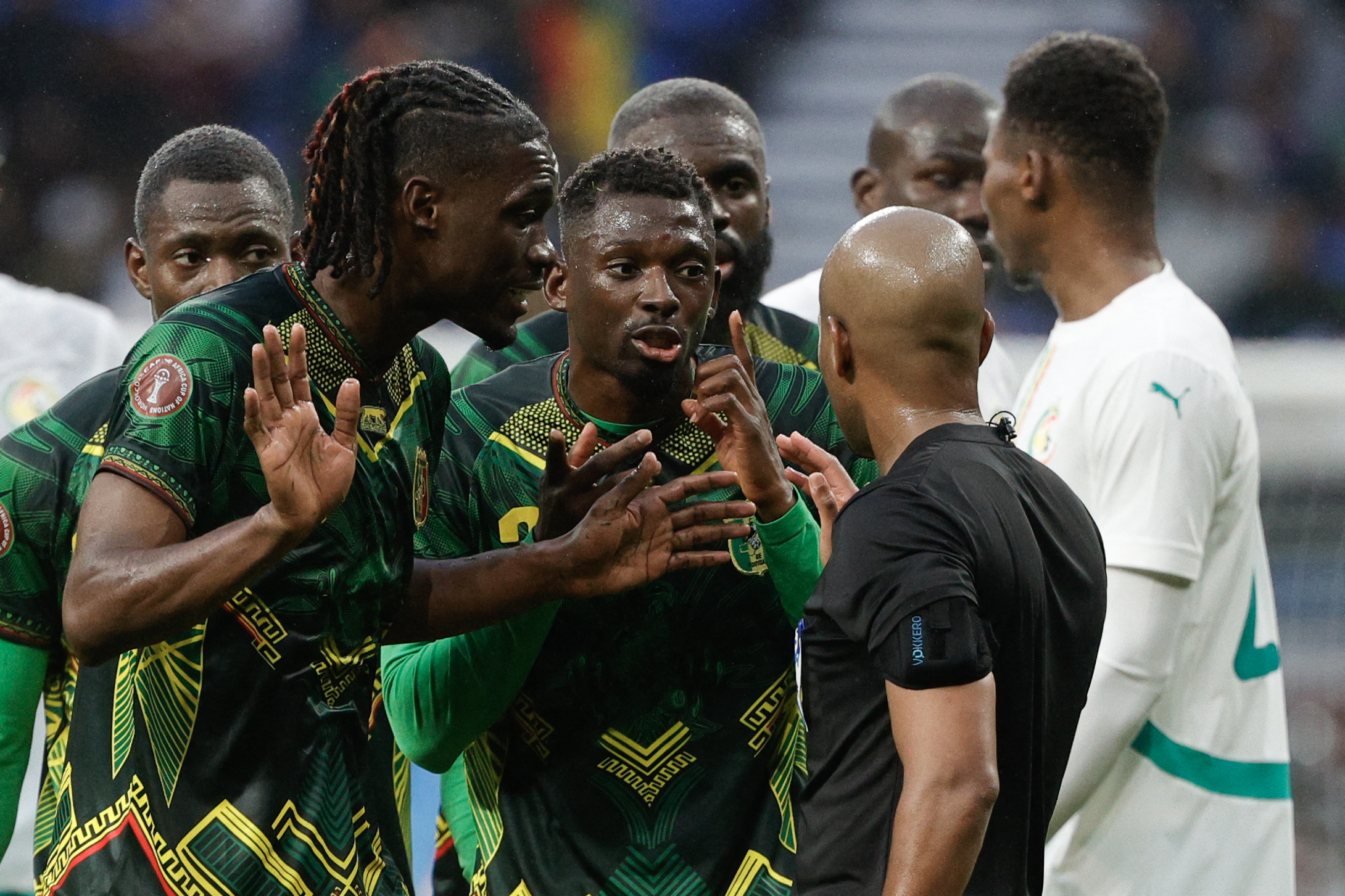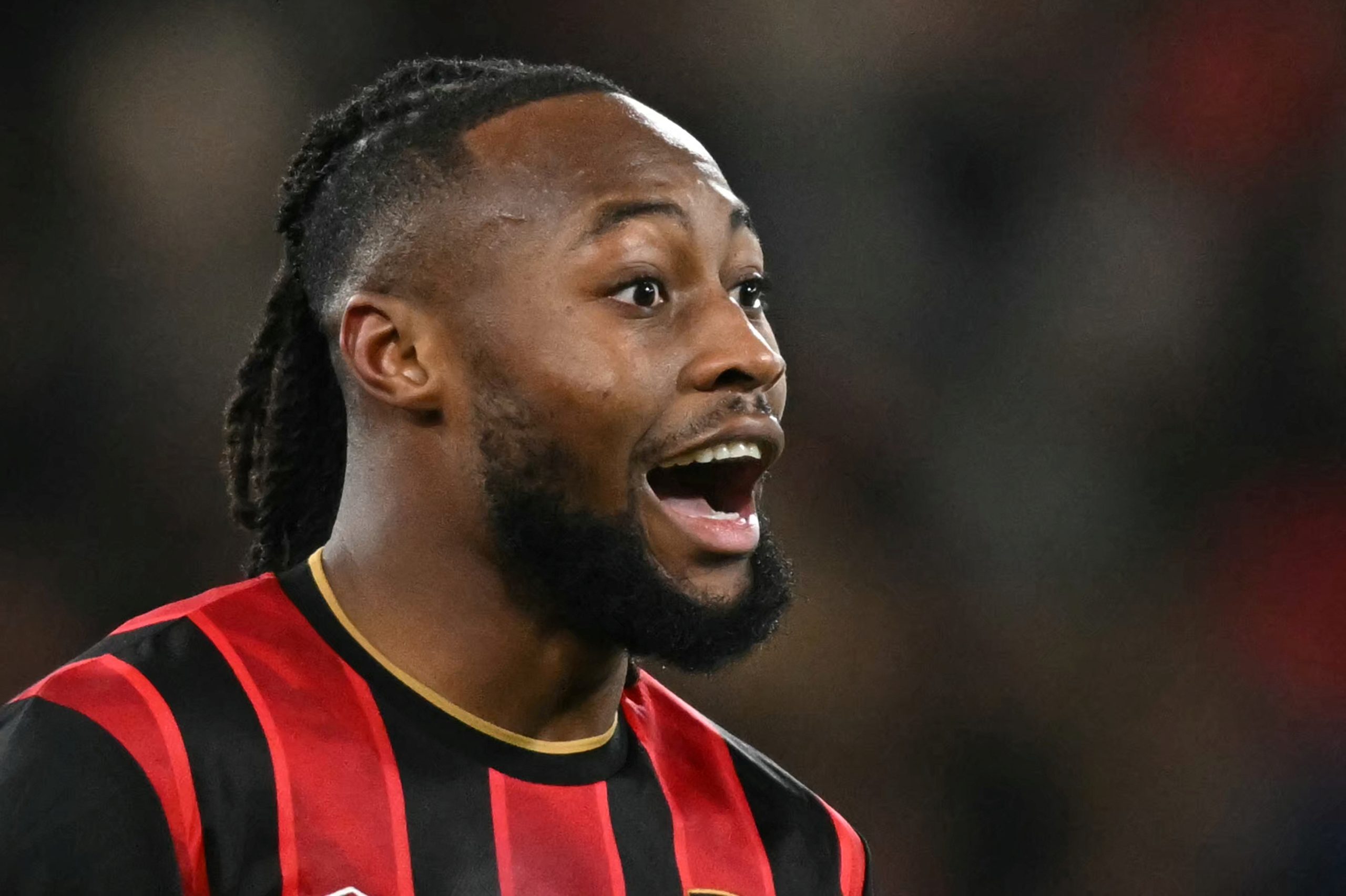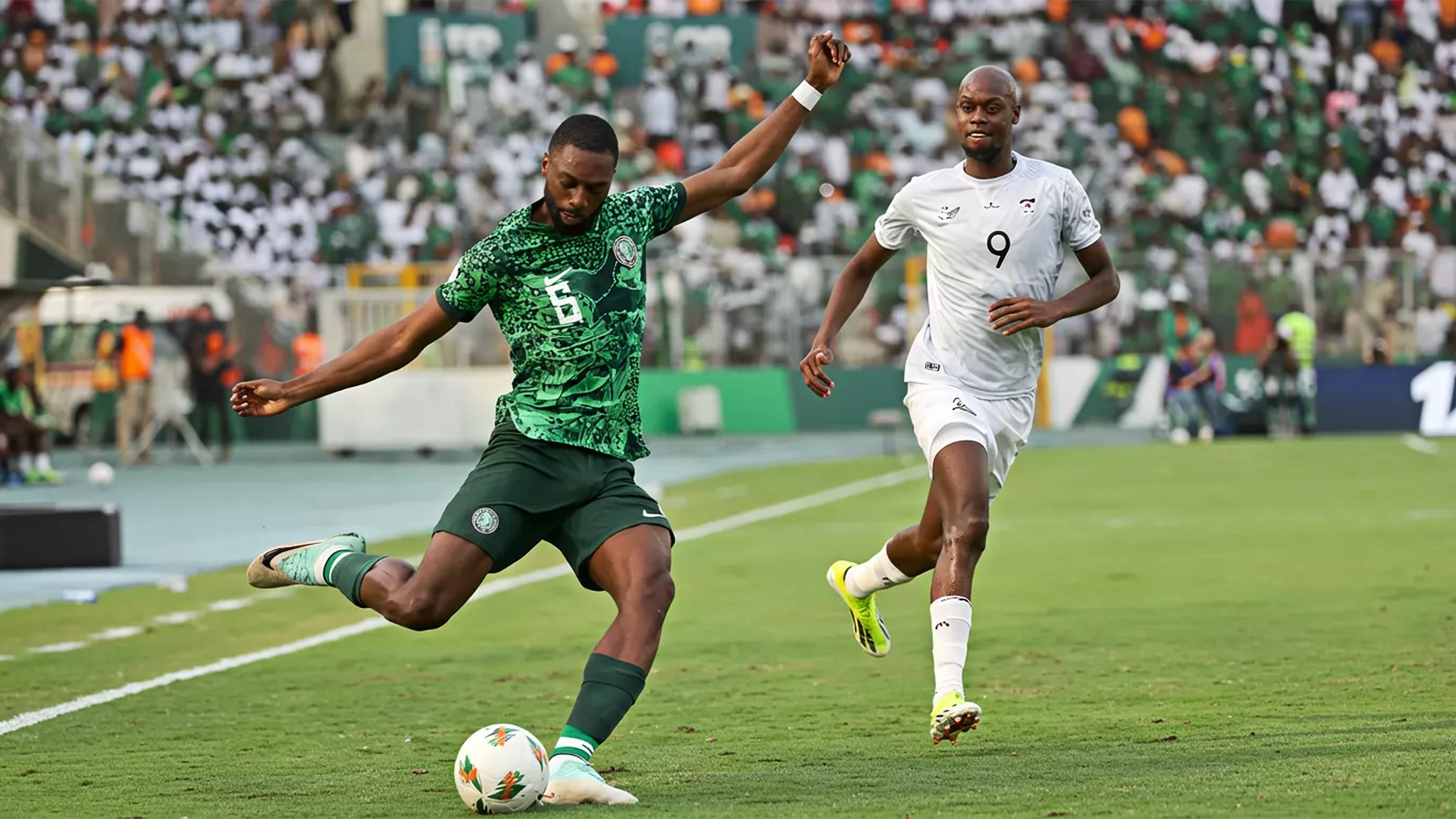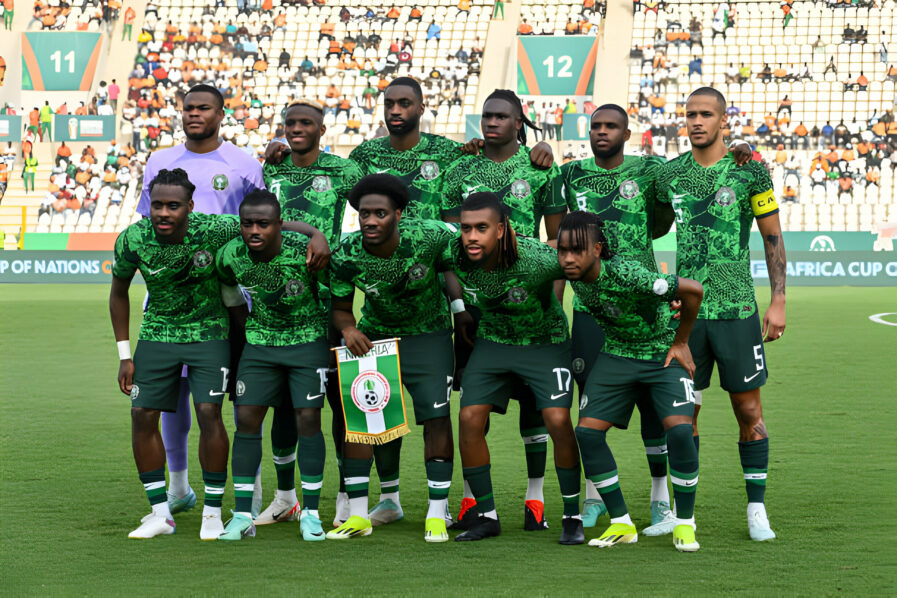
The Super Eagles of Nigeria will battle the Elephants of Ivory Coast in the final of the 2023 African Cup of Nations (AFCON) at the Alassane Ouattara Stadium on Sunday.
Nigeria booked their place in the final of the 34th edition of the continental football showpiece on Wednesday by beating South Africa 4-2 on penalties following a nervy 1-1 draw after 120 minutes.
Sunday’s final against host nation Ivory Coast will make it the eight time that the Super Eagles will be playing at that stage of the competition. So, how have they fared in their previous seven finals?
1980 AFCON (Gold)
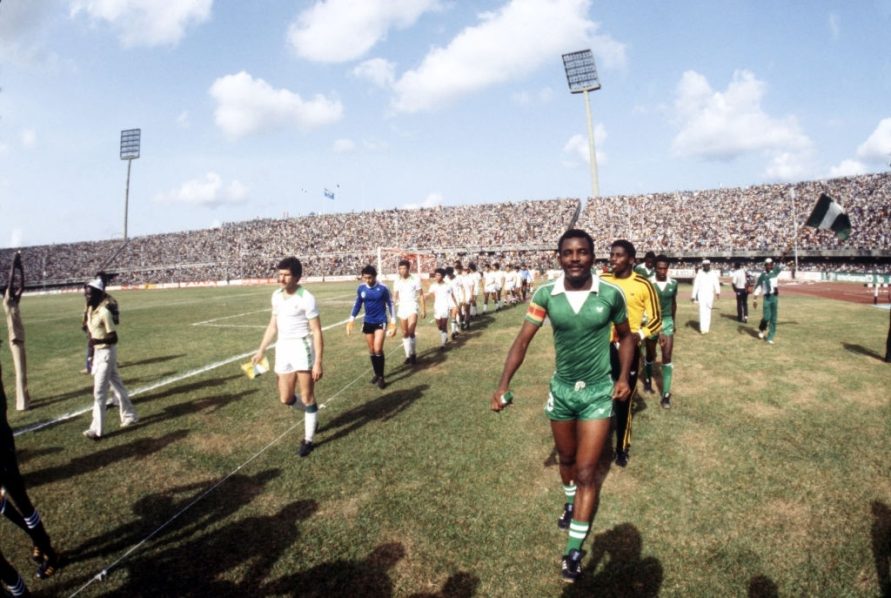
Nigeria won its maiden AFCON trophy when the country hosted the tournament in 1980 with the two venues selected for the competition, Lagos and Ibadan.
The Super Eagles, then known as the Green Eagles, had an amazing tournament and beat almost every country that they played against. In the final, Nigeria defeated Algeria 3-0 to lift the prestigious trophy.
Despite Algeria being tipped as clear favourites, the Green Eagles played like they were possessed and consumed the North Africans with two goals from Segun Odegbami in the 2nd and 42nd minutes putting Nigeria 2-0 ahead.
Midfield maestro, the late Mudashiru ‘Muda’ Lawal, playing as a striker, put the icing on the cake in the 50th minute of the final at the National Stadium in Lagos to seal a historic win for the Nigerian national team.
For Nigeria that had other stars such as Felix Owolabi, Christian Chukwu and Okey Isima under Brazilian coach, Otto Gloria, it was a tournament of firsts: first time hosting, first final appearance and, ultimately, the first AFCON title.
1984 AFCON (Silver)
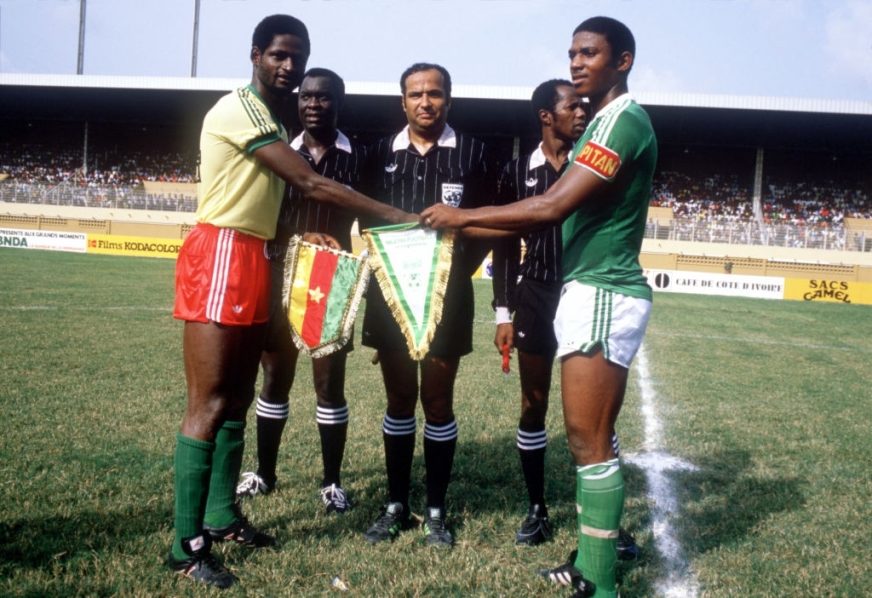
The Green Eagles made it to their fifth consecutive AFCON tournament and their sixth overall which was hosted by Cote d’Ivoire, or Ivory Coast as the case may be, in the year 1984.
And this time around, Nigeria made it to the final of the competition on March 18, 1984 where they met Cameroon at the Stade Félix Houphouët-Boigny in Abidjan which had 27,000 fans.
However, the Green Eagles failed to do it once more like they had done in 1980 when they emerged as champions as it was a dark evening for the team, supporters and the entire nation.
After a dream start to the final following Muda Lawal’s opener in the 10th minute, Rene N’Djeya (32nd), Theophile Abega (79th) and Ernest Ebongue (84th) hit a goal each to shatter Nigeria’s dreams.
1988 AFCON (Silver)
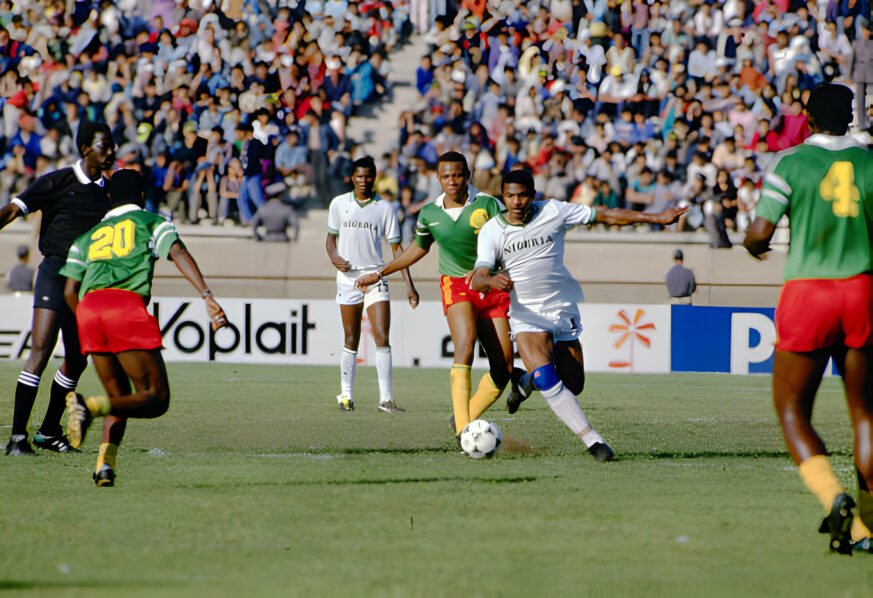
Following their failure to qualify for the 1986 AFCON, which Egypt hosted, the Green Eagles were back at it again in Morocco in the year 1988 as they reached the final where they lost to Cameroon once more.
While many African football followers and pundits believe that the youthful Nigerian side led by the late Stephen Keshi lost the 1984 final to the Indomitable Lions of Cameroon due to inexperience, some feel the officiating was unfair.
On the other hand, Cameroon would not have defeated Nigeria if the Video Assistant Referee (VAR) were in use because on March 27, 1988 at the Stade Mohamed V in Casablanca, referee Idrissa Sarr disallowed Henry Nwosu’s header.
Furthermore, the Indomitable Lions only managed to win the final match through a questionable penalty awarded to them after a clash between Sunday Eboigbe and Roger Milla.
1990 AFCON (Silver)
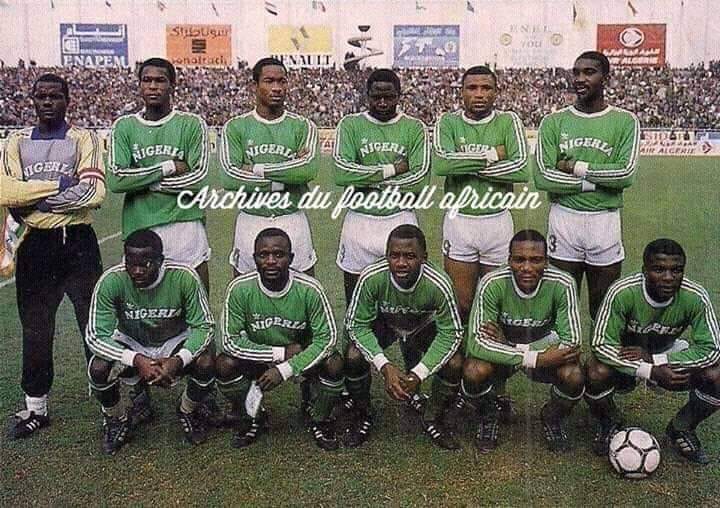
Following Nigeria’s disappointing elimination from the 1990 World Cup finals which took place in Italy, Clemens Westerhof’s Super Eagles revolution began in earnest when he led Nigeria to the final of the 1990 AFCON in Algeria.
The Nigerian team arrived in Algeria and got spanked 5-1 by the host country in the opening game of the tournament on March 3, 1990 with Emmanuel Okocha, Austin ‘Jay Jay’ Okocha’s older brother, scoring the Super Eagles’ only goal which turned out to be a mere consolation.
But rather than lose their heads, the team bounced back somehow in subsequent matches and negotiated their way into the final after narrow 1-0 victories over Egypt and Cote’Ivoire with the goals coming from the late Rashidi Yekini, before defeating Zambia 2-0 in the semis, courtesy of goals by Uche Okechukwu and Yekini.
By the time the Eagles faced Algeria again in the final at the July 5 Stadium in Algiers on March 16, 1990, they were a completely different team from the one that lost 5-1 in the opening game just two weeks earlier.
In the end, though, Algeria only managed to carve out a 1-0 win, but the Eagles were not disgraced. For a team that had started the tournament so badly, reaching the final and winning the silver medal was a great achievement.
1994 AFCON (Gold)
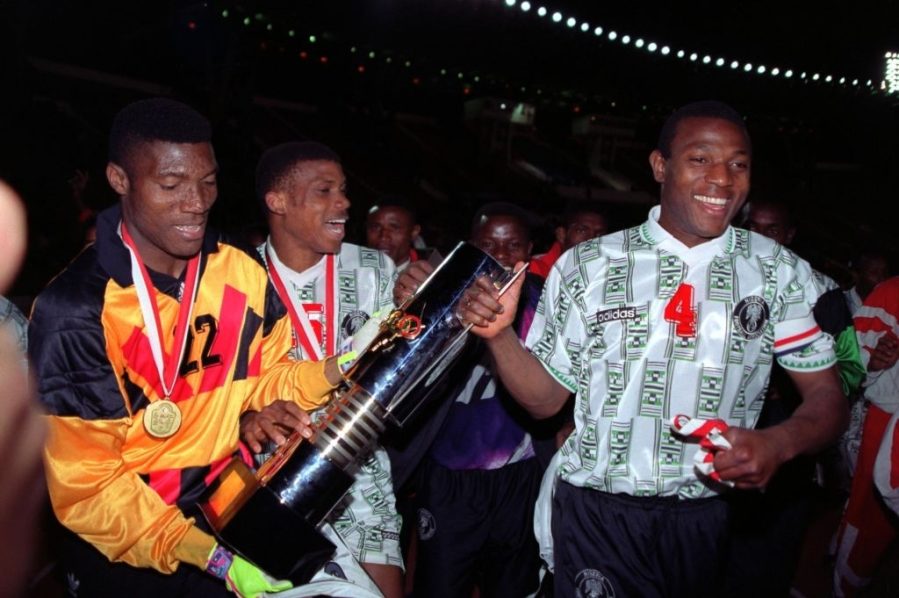
Nigeria’s golden generation of footballers won the 1994 AFCON edition in Tunisia before proceeding to the FIFA World Cup in the United States where they reached the knockout stages.
The Super Eagles paraded some notable names that made the squad one to be afraid of playing against and remain arguably the best Nigerian squad in the nation’s footballing history.
Nigeria lifted the trophy for the second time after defeating Zambia 2-1 in the final at the Stade El Menzah in Tunis with Emmanuel Amuneke netting a brace to cancel out Elijah Litana’s third minute opener.
2000 AFCON (Silver)
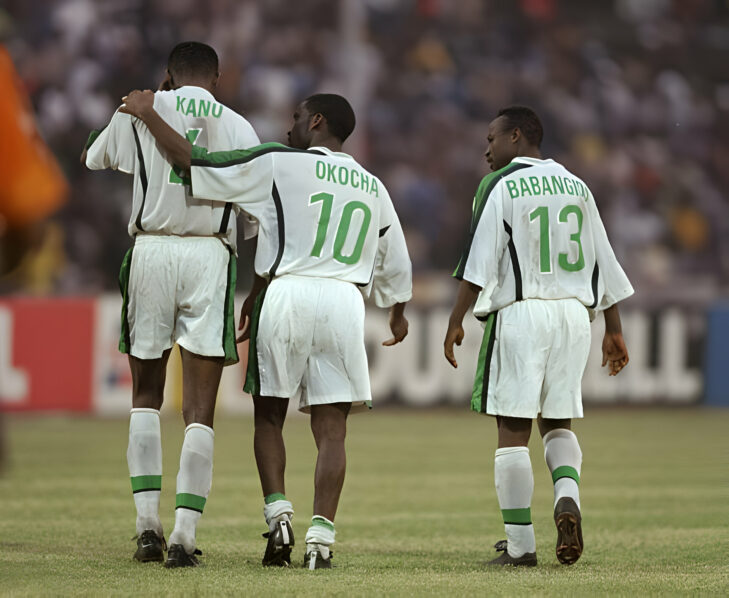
Nigeria was expected to win their third title when they co-hosted the event with Ghana in the year 2000 as the Super Eagles oozed quality in every department on the pitch.
The Super Eagles had game-changers such as Austin ‘Jay Jay’ Okocha, Daniel Amokachi, Victor Ikpeba, Sunday Oliseh, Nwankwo Kanu and Julius Aghahowa who celebrated his goals with back-flips.
Tijani Babangida scored two spectacular first-half goals for the Super Eagles to secure a 2-0 victory over South Africa in the semi-final, thereby, setting up a final date with Cameroon.
Former Chelsea, Barcelona and Inter Milan striker, Samuel Eto’o scored in the 26th minute while Patrick M’Boma doubled Cameroon’s lead on 31 minutes to silence the crowd at the National Stadium in Lagos.
Despite coming from two goals down courtesy of goals from Raphael Chukwu on 45 minutes and Okocha on 47 minutes, the Super Eagles lost controversially 4-3 on penalties in front of 60,000 spectators with most of them Nigerians who shed tears.
2013 AFCON (Gold)
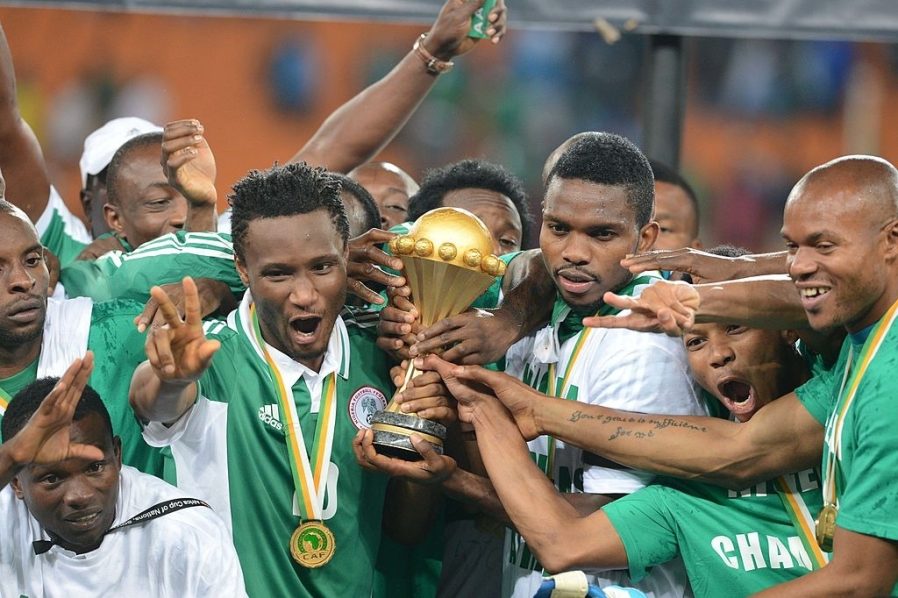
No one, including the players, football loving Nigerians and pundits across the world expected the Super Eagles to win the 2013 tournament in South Africa due to the composition of the team.
Tutored by the late Stephen Keshi, the Super Eagles were made up of both foreign and local-based players who used the competition as an opportunity to announce themselves on the international stage.
Nigeria won the competition for the third time in their history eleven years ago when they defeated Burkina Faso 1-0 in the final at the FNB Stadium in Johannesburg courtesy of a goal from Sunday Mba.
[ad unit=2]



